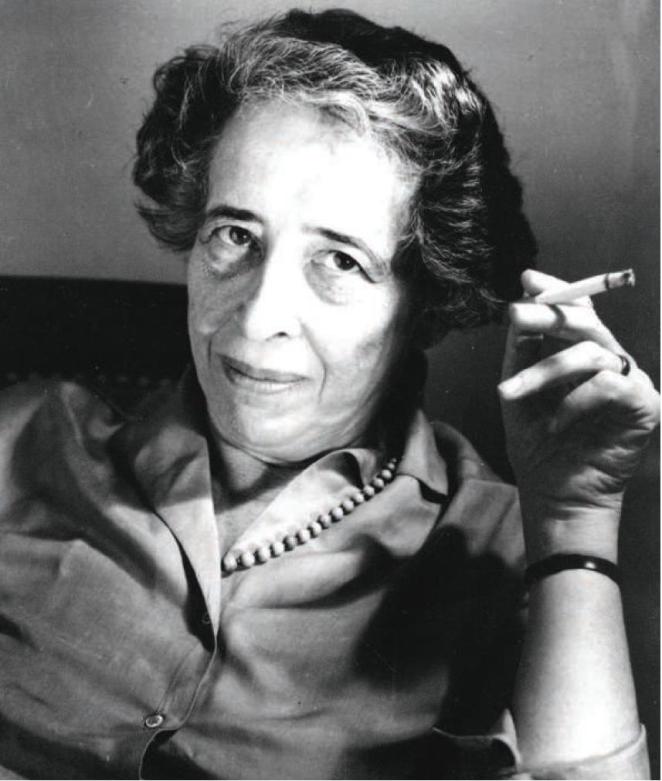This article by Bridget McKenzie is a response to my previous article ‘The absence of thinking: Hannah Arendt and the totalitarianism of ecocide’ which raised both some positive and some, surprising to me, negative comments. I haven’t met Bridget but we are both exploring similar concerns in our work and I think Bridget has furthered the ideas I raised. Bridget was formerly Head of Learning at the British Library and Education Officer for Tate. In 2006 she founded Flow UK with Mark Stevenson. Then in 2010, Eliza Hilton and Katherine Rose, established their sister company Flow India, based in Delhi/NCR. Flow works to promote and facilitate creative learning and critical thinking as a way to change the world. They have worked primarily in arts, museums, education and heritage on digital, engagement and education strategies.
Comments are welcome
 I was really interested in this piece by Cathy Fitzgerald on Hannah Arendt and her prediction that a new form of totalitarianism involving state-sanctioned ecocide would arise. This was a newly invented term in 1970 and Arendt talked about it in her last few years. Cathy acknowledges that Arendt is mainly associated with commentary on the ‘banality of evil’ of Nazism, and that the importance of this work shouldn’t be lost. But Cathy concludes that “A different but somehow similar situation is now occurring with ecocide, in how it is both right here and ‘hidden’ in political denial and our world of mass distractions and hyperconsumerism.” I agreed with the importance of updating Arendt’s thinking and, as a film about her opens in our cinemas this week, I shared the article on social media. I felt that it could be controversial but wasn’t sure how it would turn out.
I was really interested in this piece by Cathy Fitzgerald on Hannah Arendt and her prediction that a new form of totalitarianism involving state-sanctioned ecocide would arise. This was a newly invented term in 1970 and Arendt talked about it in her last few years. Cathy acknowledges that Arendt is mainly associated with commentary on the ‘banality of evil’ of Nazism, and that the importance of this work shouldn’t be lost. But Cathy concludes that “A different but somehow similar situation is now occurring with ecocide, in how it is both right here and ‘hidden’ in political denial and our world of mass distractions and hyperconsumerism.” I agreed with the importance of updating Arendt’s thinking and, as a film about her opens in our cinemas this week, I shared the article on social media. I felt that it could be controversial but wasn’t sure how it would turn out.
Very quickly…
View original post 1,361 more words


Both you and Cathy have valuable points to make. One of our principle difficulties is that overall our entire education system – and particularly HE – has become perhaps the most reactionary major institutional in society. (I’m referencing the Vice-chancellor of Aberdeen university here). The academic world refuses to move on from the disciplinary based hierarchies on which its senior individuals’ power rests so as to embrace the kind of open, multi-disciplinary approach upon which any real ecosophical praxis depends. Indeed, if we read Arendt’s description of how totalitarianism is played out in practice, we very quickly see that universities in the UK are now adopting many of the strategies and practices Arendt identifies as totalitarian.
Dr Iain Biggs RWA Visiting Research Fellow, UWE / Independent Teacher/Artist/Researcher Founder and Editorial Board member – Wild Conversations Press web site http://www.iainbiggs.co.uk
Co-convener: PLaCE (UK) – http://www.uwe.ac.uk/sca/research/place/ LAND2 – http://www.land2.uwe.ac.uk/welcome.htm Mapping Spectral Traces networks – http://www.mappingspectraltraces.org ________________________________________
LikeLike
Many thanks Iain,
Interesting to think about the power entrenched in the disciplinary structure too and yes, have definitely come across disciplinary hostility when daring to work across disciplines. My undergrad thesis was on on the dominance of science compared with the arts ‘science and the eclipse of the earth’, my main argument, was that we all too easily lose sight of our dependence on, and other less dominating ways of relating to the earth if we embrace the reductive, extractive, technocentric worldview – its all related but I think but couldn’t really articulate it very well at the time. Wish I had read Arendt back then… and now think every artist should be made to read her work
LikeLike